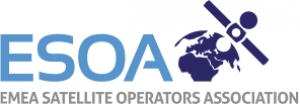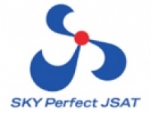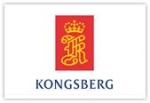Displaying items by tag: satellite operator
European Satellite Operators' Association (ESOA)
The European Satellite Operators' Association (ESOA) was formed in March 2002 to represent the interests of the industry with key European organisations, including the European Commission, Parliament, Council and the European Space Agency as well as other international organisations.
ESOA's goals include ensuring that satellites benefit from the appropriate political, industrial and regulatory environment to fulfil their vital role in the delivery of communications. ESOA is governed by a Board of Directors, made up of the CEO's of its Member Companies.
ESOA is a CEO-driven association representing 22 global and regional satellite operators. ESOA provides thought-leadership and is recognised as the representative body for satellite operators by international, regional and national bodies including regulators, policymakers, standards-setting organisations such as 3GPP and international organisations such as the International Telecommunications Union and the World Economic Forum.
SKY Perfect JSAT Corporation
SKY Perfect JSAT Corporation is a Japanese direct broadcast satellite television company that operates the SKY PerfecTV! satellite network (including the JCSat satellites, the SuperBird satellites, the Horizons satellites).
SKY Perfect JSAT Corporation is the result of the merger of JSAT Corporation, SKY Perfect Communications, Inc., and Space Communications Corporation in October 2008. It is the core operating company of the SKY Perfect JSAT Group.
SKY Perfect JSAT Corporation is built on the strengths available from a hybrid business, operating both a stable space & satellite business and a proven, high-growth multi-channel pay TV business under one roof, while at the same time building services and capacity to compete in the satellite communications market.
JSAT Corporation
JSAT Corporation (JSAT) is satellite operator (Japan).
JSAT Corp. has a fleet of communications satellites in orbit. According to a 2004 report, JSAT was the fifth largest satellite operator in the world. JSAT was the first private-sector satellite communications operator in Japan (JCSat satellites). In October 2008 JSAT, was merged with SKY Perfect Communications, Inc., and Space Communications Corporation, resulting in the creation of the SKY Perfect JSAT Group.
O3b Networks
O3b Networks, Ltd. is a satellite operator focused on delivering a worldwide broadband network.
O3b Networks delivers broadband connectivity everywhere on earth within 45 degrees of latitude north and south of the equator. The vast coverage area includes emerging and insufficiently connected markets in Latin America, Africa, the Middle East, Asia and the Pacific, with a collective population of over 3 billion people.
For this aim, O3b is building a medium Earth orbit satellite constellation, the O3B constellation. The network will combine the ubiquitous reach of satellite with the speed of fiber to deliver satellite Internet services and mobile backhaul services to emerging markets. By the first half of 2013 O3b plans to launch a constellation of 8 satellites into orbit to provide low latency Internet services to billions of users in remote areas of the world.
The name "O3b" stands for "[The] Other 3 Billion", referring to the population of the world where broadband Internet is not available without help.
Kongsberg Satellite Services (KSAT)
Kongsberg Satellite Services AS or KSAT is an operator of satellite ground stations based in Tromsø, Norway. KSAT has three main ground stations: Tromsø Satellite Station, Svalbard Satellite Station and Troll Satellite Station.
KSAT is a commercial Norwegian enterprise, uniquely positioned to provide ground station and earth observation services for polar orbiting satellites. With three interconnected polar ground stations; Tromsø at 69°N, Svalbard (SvalSat) at 78°N and Antarctic TrollSat Station at 72°S, and a growing mid-latitude network, KSAT operates over 60 antennas optimally positioned for access to polar orbits.
KSAT is a joint venture equally owned by the Kongsberg Group and the Norwegian Space Centre, the latter owned by the Ministry of Trade and Industry.
Telesat Canada
Telesat Canada, or Telesat, is a global fixed satellite services operator providing reliable and secure satellite-delivered communications solutions worldwide to broadcast, telecom, corporate and government customers. In 2013, Telesat is the fourth-largest fixed satellite services provider in the world.
Telesat Canada was founded on May 1969. It is headquartered in Ottawa, Canada, with offices and facilities around the world. In 2013, the company's fleet consists of 13 satellites and the Canadian Ka-band payload on ViaSat-1, plus one satellite awaiting launch. Telesat also manages the operations of additional satellites for third parties. Privately held, Telesat's principal shareholders are Canada's Public Sector Pension Investment Board and Loral Space & Communications Inc.
On October 5, 2007 Loral Space & Communications Inc. and the Public Pension Investment Board of Canada received the final regulatory approval necessary to complete the acquisition of Telesat from BCE Inc. for CAD $3.25 billion. The acquisition closed on October 31, 2007, with Loral owning 64 percent of Telesat.
At the same time, Telesat Canada merged with Loral Skynet, a subsidiary of Loral Space & Communications. Loral Skynet was a full-service global satellite operator headquartered in Bedminster, New Jersey. This resulted in the transfer of all of the assets of Loral Skynet to Telesat.
Space Communication Ltd (Spacecom)
Spacecom (Space Communication ltd), is a communications satellite operator in the Middle East, European Union and North America.
Spacecom is headquartered in the city of Ramat Gan, Israel. Spacecom operates the AMOS satellite family. Two satellites are at orbital position 4° West – AMOS 2 and AMOS 3.
HISPASAT Group
HISPASAT is a global satellite operator offering coverage and quality service in Europe, America, Canada and North America. Its target is the Spanish and Portuguese language markets.
HISPASAT is dedicated to distribute satellite television, radio channels and the transmission of digital television platforms in Europe, America and North Africa. It's satellites allow for the most advanced telecommunication services for business, providing broadband access to the Internet and the development of new interactive and multimedia services related to digital technology such as: tele-training, content distribution, video and movies on demand, and high quality video conferencing.
HISPASAT has been established in 1989.
In 2012, the HISPASAT's satellite communications system includes satellites located at the following orbital positions:
- A transatlantic position at 30º West, where satellites are located, Hispasat 1C, Hispasat 1D, Hispasat 1E and Spainsat
- An American position at 61º East, where the Amazonas 1 y 2 satellites, and
- An oriental position at 29º East, in which the Xtar-Eur satellite is located.
APT Satellite Holdings Ltd
Operator of the Apstar series of communications satellites in the Asia Pacific region, providing satellite services, including broadband media and television services.
APT launched its first satellite, APSTAR-1, in 1994.
APSTAR-V and APSTAR-VI is the new generation (as of Nov. 2012) of high-power and high-reliability communication satellites.
GAZPROM Space Systems
Gazprom Space Systems is a part of Gazprom Group. Gazprom Space Systems carries out space and telecommunication activities:
- Satellite Operator (satellite capacity provision);
- Services Provider (provision of satellite communication links, broadcasting services, Internet access, aerospace monitoring);
- Systems Integrator (satellite communication and broadcasting networks development and deployment);
- Space Systems Designer.
Thus, Gazprom Space Systems is a diversified, vertically integrated, scientific and technological, production and operation structure.
Gazprom Space Systems currently (Oct. 2012) operates three Yamal telecommunication satellites, designed and built jointly with the Energia space corporation. The satellites are used to transmit over 60 Russian and foreign television channels, and are also used by the Defense, Nuclear Energy, and Education Ministries.









































